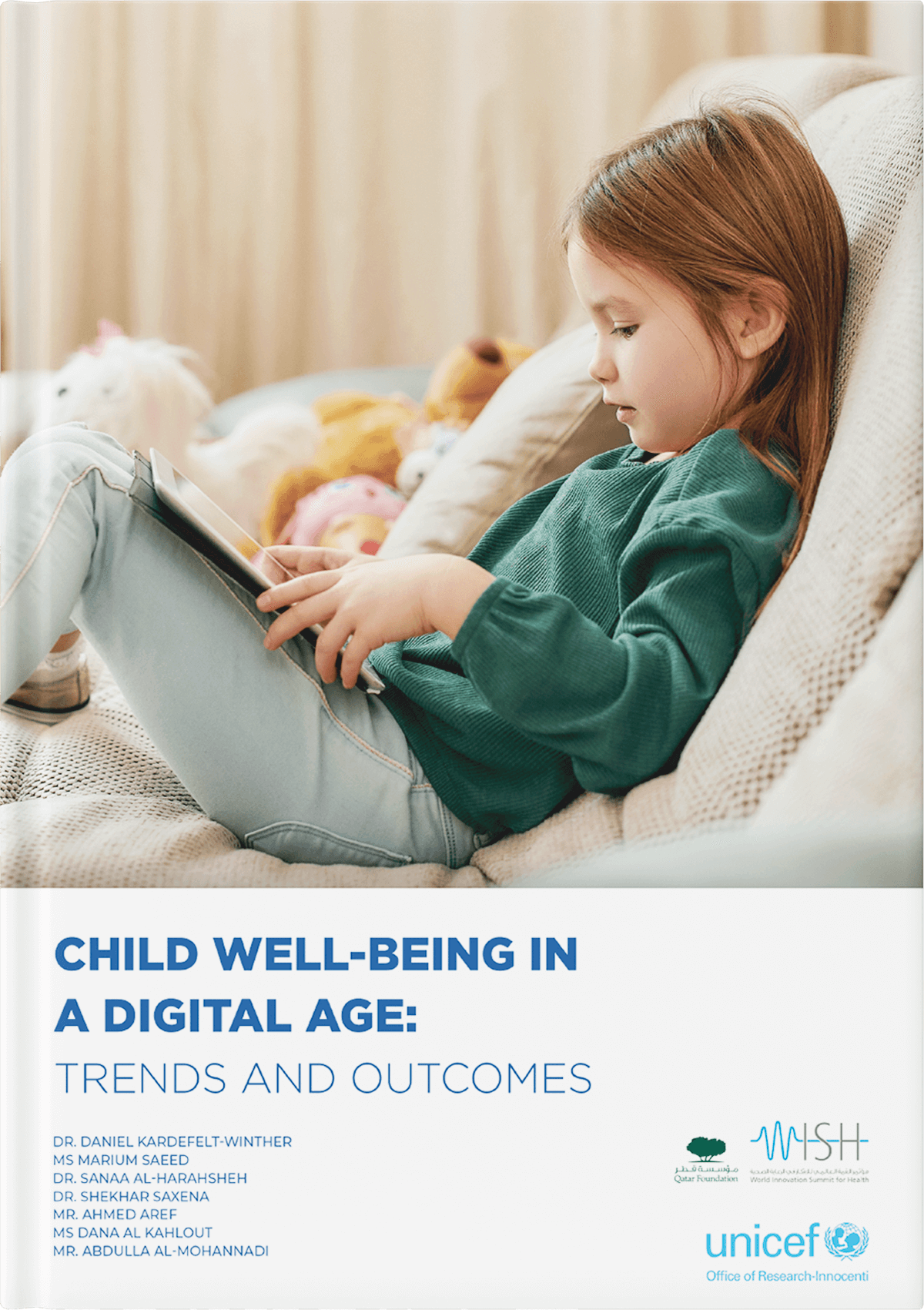ملخص تنفيذي
As digital technology becomes more prominent in the lives of children around the globe, the risks and harms that digital technology may pose to children’s well-being is receiving considerable attention. The rapid increase in screen time has been a major concern, including the consequences this might have on children’s social lives as well as their physical and mental health. With the increased reliance on digital technology, particularly during the COVID-19 pandemic, these concerns have only intensified.
In the Middle East and North Africa (MENA), studies have shown a vast increase in digital connectivity in the region even before COVID-19. It is plausible that younger segments of the population, particularly children who grew up with digital technology, are even more immersed in the digital world than adults. Yet, evidence generation on how this connectivity is influencing children and young people’s well-being in MENA remains scarce.
This paper takes stock of existing evidence around children’s use of digital technology in relation to three well-being outcomes: social relationships, mental health, and physical health. It considers both the benefits and risks that may be present in children’s digital experiences, whilst also recognizing that online risks do not automatically turn into harm. It also considers the latest evidence on gaming disorder, which has been highlighted as a particular area of concern by the World Health Organization.
Although evidence on the relationship between digital technology and aspects of child well-being remain inconclusive, there are a few areas – such as the impact on social relationships – where fairly strong evidence suggests that the internet can be a facilitator of positive outcomes for children. However, much of this evidence centers on communities in North America and Europe. It is difficult to draw conclusions around children’s digital use in the Middle East without a stronger evidence base, and a deeper understanding of children’s unique experiences with digital technology in the MENA region.
The evidence base on gaming disorder is currently weak and requires strengthening before this research can underpin policy and practice development; it is the hope that the new definition from the WHO will support such a positive development.
Ensuring that digital technologies are used productively to benefit children is a multisectoral effort, and as such recommendations are presented in this paper targeting various key stakeholders.
General public:
- Parents and teachers should ensure that they are equipped with adequate digital skills and understanding of the digital space, in order to support children’s digital use.
- Schools should integrate digital tools and a focus on digital literacy in curricula. Research suggests that younger children may benefit from a greater curricular focus on digital skills development, including operational and transferable skills.
Policy makers:
- Children’s voices should be central in research and policy debate around their internet use. Adult-centric assumptions often guide our understanding of whether internet use is positive or negative for children’s well-being. Generating evidence directly with children is key to effective policy development in this area of work.
Researchers and donors:
- Further research and baseline evidence on children’s internet use in the MENA context is needed. An important next step to inform the development of policy and practice in the MENA region is to gather high-quality comparable data on children’s online experiences.
- The new WHO definition of gaming disorder could be a starting point for improved research on this topic. This will support researchers in developing a better, more nuanced understanding of the potential for problematic internet use among young people.

